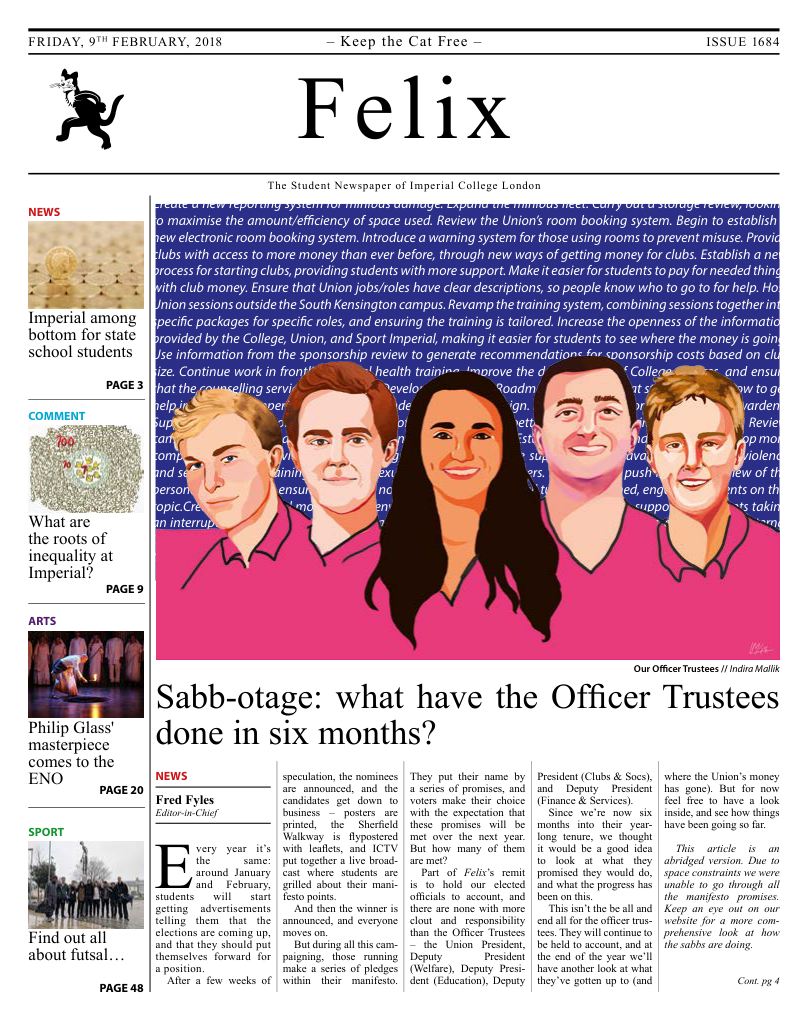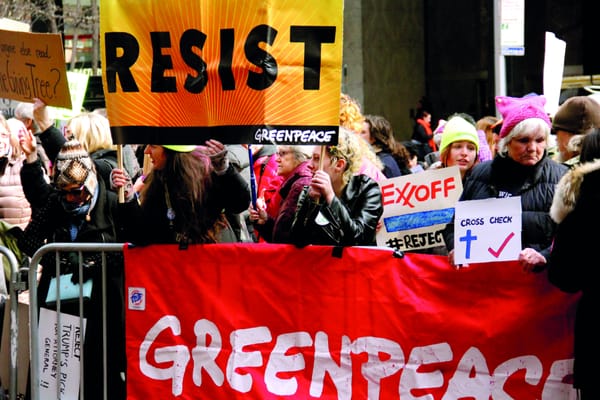LGBT History Month: Why is it important?
LGBT History Month gives us a chance to look at how far things have come, and how far we have left to go.

If you’ve wondered why the Queen’s Tower is lit up in rainbow colours, it’s because Imperial is currently celebrating LGBT (Lesbian, Gay, Bisexual, Transgender) History Month – an annual observance of the history and experiences of LGBT people that aims to promote acceptance and raise awareness of the issues faced by this community.
This year’s theme is ‘Geography: Mapping the World’. Looking back on 2017, the good news is that ten more countries legalised same-sex marriage. However, the LGBT+ community also suffered severe attacks in countless parts of the world, with an extreme example being the abduction and torture of over 100 men, at least three of whom were killed, in the Chechen Republic of Russia on the basis of their perceived sexual orientation. This was not an isolated incident, as discrimination against LGBT+ people is institutionalised in Russia – activists’ requests to hold rallies are frequently rejected by officials and when these events occur it is not uncommon for participants to be targeted by homophobic attacks. In October, Human Rights Watch reported the arrest and torture of gay and bisexual men by police in Azerbaijan. Similar institutional crackdowns occurred in Indonesia and Egypt only last year. Furthermore, the widespread misunderstanding of transgender people, and the lack of recognition of the separation of gender identity and sexual orientation, imply that the trans community is also very likely to be persecuted or otherwise abused under such anti-gay laws.
Nonetheless, it must be recognised that LGBT+ people worldwide face extreme daily oppression that goes unreported. This is reflected by the fact that engaging in same-sex relations remains criminalised in 72 countries, and is punishable by death in at least four of these. Most countries do not allow trans people to change their name and gender from those assigned at birth and only a few recognise non-binary people. It is estimated that a quarter of the world’s population believes that being LGBT should be a crime. In light of this, it is evident that there is still an enormous amount of work left to do, not only to achieve equality for the LGBT+ community, but to attain fundamental human rights.
“There is no place in the world where full equality has been reached”
Since the decriminalisation of homosexuality in 1967, the UK has implemented further laws to advance LGBT+ rights, including protection against discrimination in employment, allowing transgender people to change their name and legal gender, and the legalisation of same-sex marriage. However, improvements still need to be made. For example, the UK’s Gender Recognition Act still involves a highly medicalised process and does not recognise non-binary people. Moreover, trans youth are extremely under-represented in society and are frequently attacked in the media to the point that almost half of trans pupils in the UK have attempted suicide.
In fact, schools are still not safe spaces for trans and LGB people, and current sex education is not inclusive of LGBT+ issues. According to recent data from Stonewall, many LGBT+ people face significant challenges in all areas, with 45% of LGBT+ students facing bullying for their sexual orientation or gender identity and 25% of transgender people feeling obliged to switch jobs as a result of harassment and bullying.
There is no place in the world where full equality has been reached. It is an ongoing battle where rollbacks often happen.
This is why it is so important to acknowledge the contributions LGBT+ people have made to society in the face of systemic oppression and to honour those who have committed their lives to securing a better future for the LGBT+ community.








